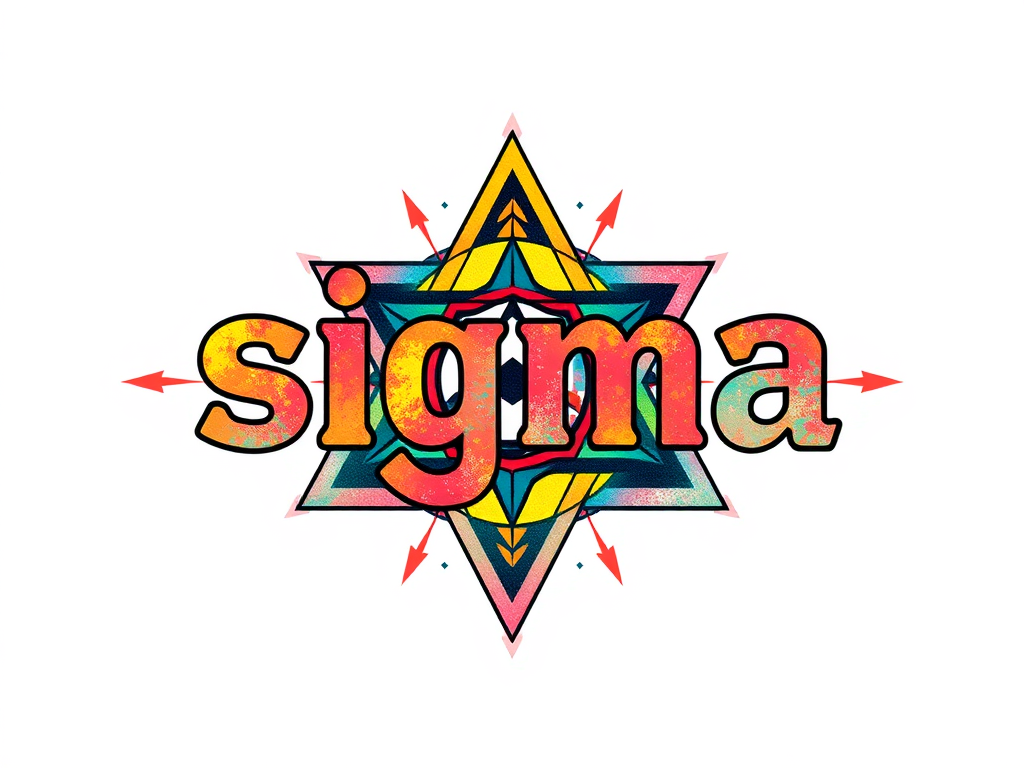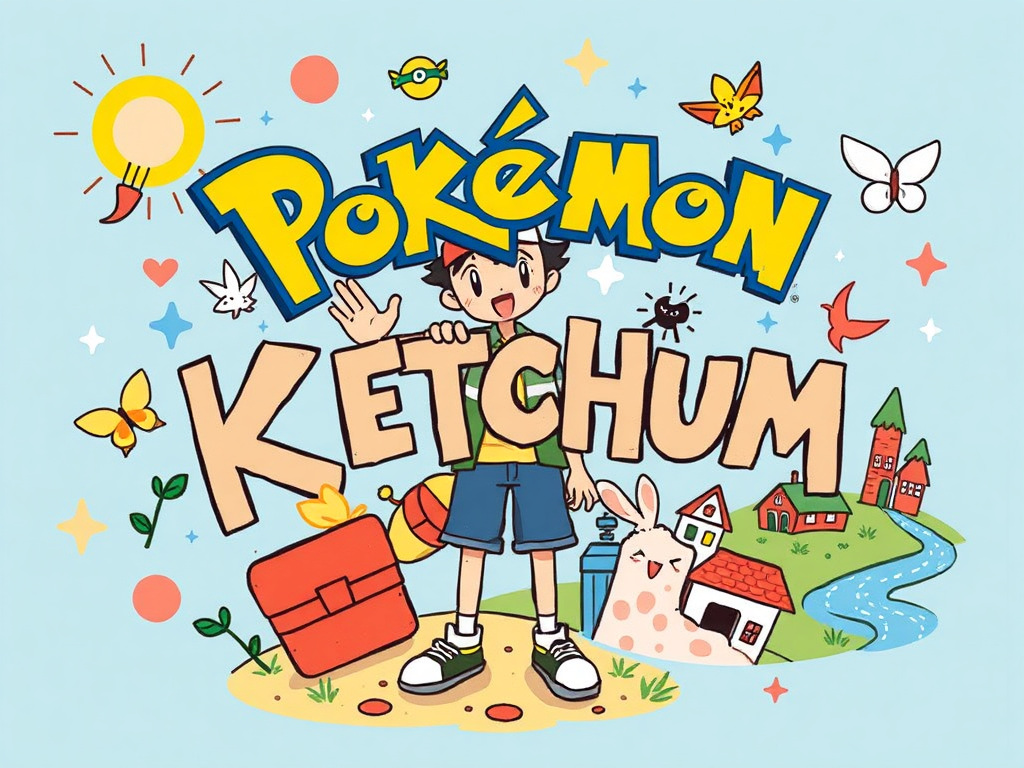If you’ve been scrolling through TikTok or listening to conversations among today’s kids, you’ve probably heard the term “sigma” thrown around frequently. While Sigma is mostly known as a Greek letter, the Gen Alpha meaning behind the word is internally just a “cool guy” who plays by their own rules, and Gen A defines a sigma as someone independent, confident, and popular—both in the friendship and romantic sense.
This comprehensive guide will decode the sigma meaning in Gen Alpha slang, explore its origins, and help you understand why this term has become so popular among younger generations in 2025.
Understanding Gen Alpha and Their Digital Language
Who Are Gen Alpha?
Gen Alpha kids were born between 2010 and 2025, making them the first generation to grow up entirely in the digital age. Gen Alpha kids have never known life without iPhones (those came out in 2007), and a lot of their life is lived in front of screens—from laptops in classrooms to gaming with their friends after school.
Key characteristics of Generation Alpha include:
- Digital natives: Born into a world of smartphones and social media
- Screen-first lifestyle: Education, entertainment, and social interaction heavily digital
- Highly connected: Constant access to global information and trends
- Socially aware: Exposed to diverse perspectives through online platforms
- TikTok influenced: Language shaped by viral content and memes
The Rise of Gen Alpha Slang
They’re navigating the adolescent social structure, with new words to describe their experiences. And they are heavily influenced by what they see online, whether on TikTok, YouTube, or within their online gaming worlds.
The sigma slang meaning represents just one example of how Gen Alpha has created their own linguistic identity, distinct from previous generations while building upon existing internet culture.
What Does Sigma Mean in Gen Alpha Slang?
The Core Definition
In Gen Alpha slang, sigma has evolved far beyond its mathematical origins. It’s also shorthand for describing something as the best or really, really good.
Primary meanings of sigma in Gen Alpha slang:
- Cool or awesome: Something impressive or desirable
- Independent person: Someone who operates by their own rules
- Confident individual: A person with self-assurance and charisma
- Popular figure: Someone well-liked in social circles
- Alpha-level status: Similar to “alpha” but with more independence
Sigma vs. Alpha: Understanding the Difference
While alpha traditionally represents dominance and leadership, sigma carries a different connotation in Gen Alpha culture:
| Alpha | Sigma |
|---|---|
| Group leader | Independent operator |
| Seeks attention | Naturally attracts attention |
| Follows social hierarchy | Creates own path |
| Dominant personality | Confident but not domineering |
| Pack mentality | Lone wolf approach |
Common Usage Examples
Sigma appears in various contexts within Gen Alpha conversations:
- “That’s so sigma!” – That’s really cool/awesome
- “He’s sigma” – He’s confident and independent
- “Sigma move” – A clever or impressive action
- “Sigma energy” – Confident, independent attitude
- “Sigma grinding” – Working hard independently
The Evolution of Sigma: From Greek Letter to Gen Alpha Icon
Historical Context
The term sigma originates from the Greek alphabet, where it represents the letter “S” and is commonly used in mathematics and science. However, its journey into Gen Alpha slang follows a fascinating path through internet culture.
Internet Culture Origins
The sigma male concept emerged from online communities discussing personality archetypes, particularly in relation to the “alpha male” concept. This eventually evolved into the simplified sigma slang used by Gen Alpha.
Timeline of sigma’s evolution:
- Ancient Greece: Sigma as Greek letter
- 2000s-2010s: Academic use in psychology and sociology
- 2015-2020: Internet communities develop “sigma male” concept
- 2020-2023: TikTok and social media popularize the term
- 2024-2025: Gen Alpha adopts simplified “sigma” slang
TikTok and Social Media Influence
Additionally, much of the language described as generational slang, for Gen Alpha and previous generations, actually originated in African American Vernacular English (AAVE).
The spread of sigma meaning accelerated through:
- TikTok videos: Viral content explaining and using the term
- Gaming communities: Online gaming discussions and streaming
- Meme culture: Humorous content reinforcing the concept
- Peer-to-peer sharing: Word-of-mouth among Gen Alpha kids
Popular Sigma Phrases and Combinations
“What the Sigma”
One of the most recognizable phrases in Gen Alpha vocabulary is “what the sigma” or “erm what the sigma.” This expression serves as:
- Surprise indicator: Similar to “what the heck”
- Confusion marker: When something doesn’t make sense
- Meme reference: Often used ironically or humorously
- Attention grabber: Way to emphasize a point
Sigma Combined with Other Gen Alpha Terms
Sigma frequently appears alongside other Gen Alpha slang:
Popular combinations:
- “Sigma rizz”: Confident charm and charisma
- “Alpha sigma”: Ultimate cool/confident person
- “Sigma gyatt”: Expressing admiration with confidence
- “Skibidi sigma”: Combining multiple Gen Alpha terms
- “Ohio sigma”: Ironic or contradictory usage
Regional Variations
The sigma slang meaning varies slightly across different regions and communities:
North American usage:
- Emphasizes independence and confidence
- Often paired with gaming terminology
- Strong TikTok influence
International usage:
- Adapted to local languages and contexts
- Mixed with regional slang terms
- Varies in intensity and meaning
The Psychology Behind Sigma Appeal
Identity Formation in Gen Alpha
For Gen Alpha kids, using sigma represents more than just slang—it’s about identity formation:
Psychological aspects:
- Independence assertion: Claiming autonomy from traditional hierarchies
- Confidence building: Using language that promotes self-assurance
- Peer connection: Sharing common vocabulary with age group
- Digital identity: Creating online personas through language choices
Social Hierarchy Navigation
A large swath of Gen A kids are also in middle school and early high school. They’re navigating the adolescent social structure, with new words to describe their experiences.
Sigma helps Gen Alpha navigate complex social dynamics by:
- Providing alternative to traditional popularity concepts
- Celebrating individuality over conformity
- Creating inclusive language for different personality types
- Offering empowerment through linguistic choice
Sigma in Different Contexts
Educational Settings
Teachers and educators encounter sigma slang regularly in classrooms:
Common scenarios:
- Students describing classmates as “sigma”
- Using the term to praise independent thinking
- Incorporating it into creative writing assignments
- Discussing it in media literacy classes
Family Dynamics
Parents often struggle to understand what does sigma mean when their children use it:
Family contexts:
- Children describing siblings or friends
- Explaining achievements or successes
- Discussing social situations at school
- Using it in casual conversation
Online Gaming and Streaming
The gaming community heavily influences sigma meaning development:
Gaming contexts:
- Describing skilled independent players
- Celebrating solo achievements
- Discussing character archetypes
- Streaming culture references
Generational Language Comparison
Millennial vs. Gen Alpha Slang
As an elder millennial, I’ve been trying to dig back in the archives of my brain to see how pop culture and the media I consumed in the ’90s shaped my language as a tween and teen.
Translation guide:
| Millennial Term | Gen Alpha Equivalent |
|---|---|
| Cool | Sigma |
| Awesome | That’s sigma |
| Independent | Sigma energy |
| Confident | Sigma vibes |
| Popular | Alpha sigma |
Gen Z vs. Gen Alpha Usage
While Gen Z introduced many terms that Gen Alpha still uses, sigma represents a uniquely Gen Alpha adaptation:
Gen Z: Focused on “slay,” “periodt,” “no cap” Gen Alpha: Emphasizes “sigma,” “skibidi,” “rizz”
The Cultural Impact of Sigma Slang
Media and Entertainment
The sigma phenomenon has influenced:
Entertainment sectors:
- Music: Artists incorporating the term into lyrics
- Movies: References in youth-oriented content
- Television: Characters using Gen Alpha slang
- Advertising: Brands targeting Gen Alpha demographics
Educational Implications
Schools and educators are adapting to sigma slang meaning:
Educational responses:
- Language arts curriculum updates
- Digital literacy programs
- Social skills development
- Anti-bullying initiatives incorporating new terminology
Marketing and Commercial Use
Businesses recognize the power of sigma in reaching Gen Alpha:
Commercial applications:
- Social media marketing campaigns
- Product naming strategies
- Influencer collaborations
- Brand identity development
Common Misconceptions About Sigma
It’s Not Just About Dominance
Unlike traditional alpha concepts, sigma in Gen Alpha slang isn’t primarily about dominance or aggression. Instead, it emphasizes:
- Self-reliance: Ability to succeed independently
- Authenticity: Being true to oneself
- Confidence: Natural self-assurance
- Respectful independence: Leading without dominating others
It’s Not Gender-Specific
While originally associated with male archetypes, Gen Alpha uses sigma for all genders:
Inclusive usage:
- “Sigma girl”: Independent, confident female
- “Sigma energy”: Applicable to anyone
- “Sigma vibes”: Gender-neutral expression
- “Sigma move”: Action anyone can take
It’s Not Always Serious
Much sigma usage in Gen Alpha is playful, ironic, or humorous rather than serious identity claims.
How to Use Sigma Appropriately
For Parents and Educators
Understanding what does sigma mean helps adults connect with Gen Alpha:
Best practices:
- Listen actively: Pay attention to context and usage
- Ask questions: Show genuine interest in their language
- Avoid appropriation: Don’t force slang into your vocabulary
- Respect evolution: Understand language changes rapidly
For Brands and Marketers
Companies targeting Gen Alpha should understand sigma meaning:
Marketing guidelines:
- Authentic usage: Don’t force slang into campaigns
- Cultural sensitivity: Respect the origins and evolution
- Age-appropriate: Ensure content matches audience maturity
- Trend awareness: Stay updated on language evolution
The Future of Sigma and Gen Alpha Slang
Language Evolution Patterns
Also worth noting is that because of how quickly slang spreads through social media, terms can also become quickly overused.
Predicted trends:
- Rapid evolution: Terms may become outdated quickly
- Platform influence: New social media platforms will shape language
- Global integration: International variations will emerge
- Mainstream adoption: Some terms will enter standard dictionaries
Long-term Cultural Impact
The sigma phenomenon represents broader cultural shifts:
Cultural implications:
- Independence valuation: Society increasingly values self-reliance
- Hierarchy questioning: Traditional power structures being challenged
- Digital identity: Online personas becoming more important
- Linguistic creativity: New generations creating distinct languages
Conclusion: Embracing the Sigma Generation
Understanding what does sigma mean in Gen Alpha slang provides valuable insight into how younger generations communicate, think, and identify themselves. Rather than dismissing these linguistic innovations, we can appreciate them as natural evolution of human expression in the digital age.
However, Gen A defines a sigma as someone independent, confident, and popular—both in the friendship and romantic sense. It’s also shorthand for describing something as the best or really, really good. This definition reflects Gen Alpha’s values: independence, authenticity, confidence, and excellence.
As sigma slang continues to evolve, staying informed about its usage and cultural significance helps bridge generational gaps and foster better communication across age groups. Whether you’re a parent trying to understand your Gen Alpha child, an educator working with young students, or simply someone interested in linguistic evolution, recognizing the depth and meaning behind sigma opens doors to meaningful connections with the next generation.
The sigma meaning in 2025 represents more than just slang—it’s a window into the values, aspirations, and identity formation of Generation Alpha. By understanding and respecting their linguistic creativity, we can better support these young people as they navigate their unique place in an increasingly digital world.
Remember, language is living and breathing, constantly evolving with each generation. The sigma slang meaning today might be different tomorrow, but its core message of independence, confidence, and authenticity will likely remain relevant as Gen Alpha continues to shape the future of human communication.

Catherine Frank, founder of BiblicalHorizon.com, shares daily prayers and Bible verses to nurture spiritual growth. With a lifelong passion for scripture and prayer traditions, she creates accessible spiritual content that resonates with both seasoned believers and newcomers seeking divine connection.



